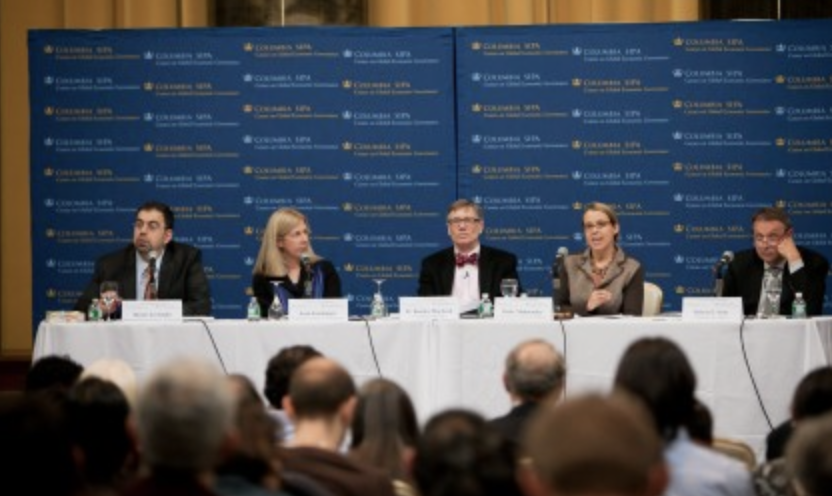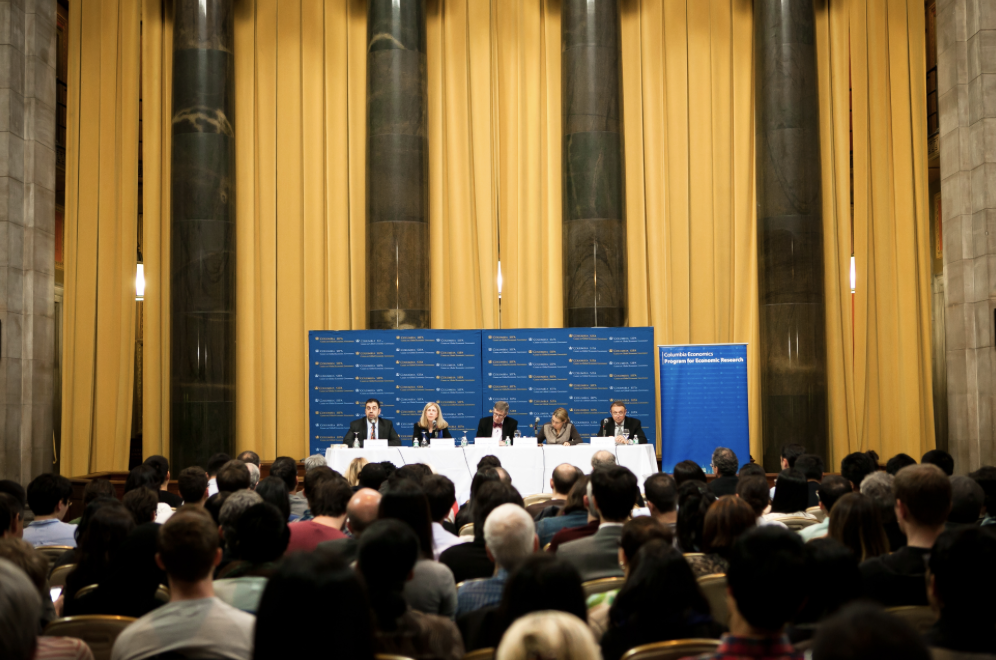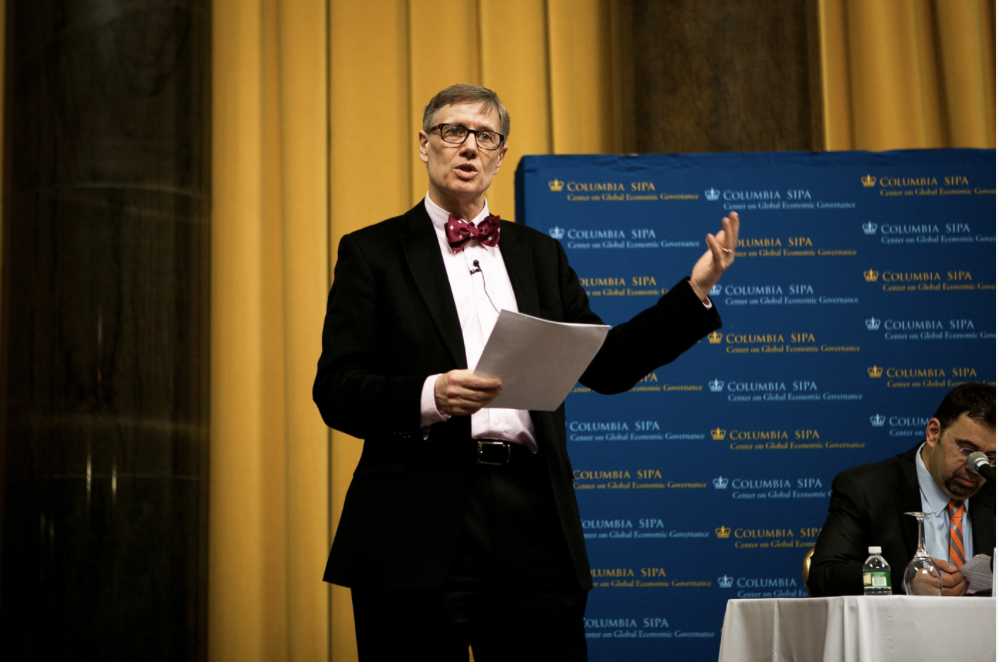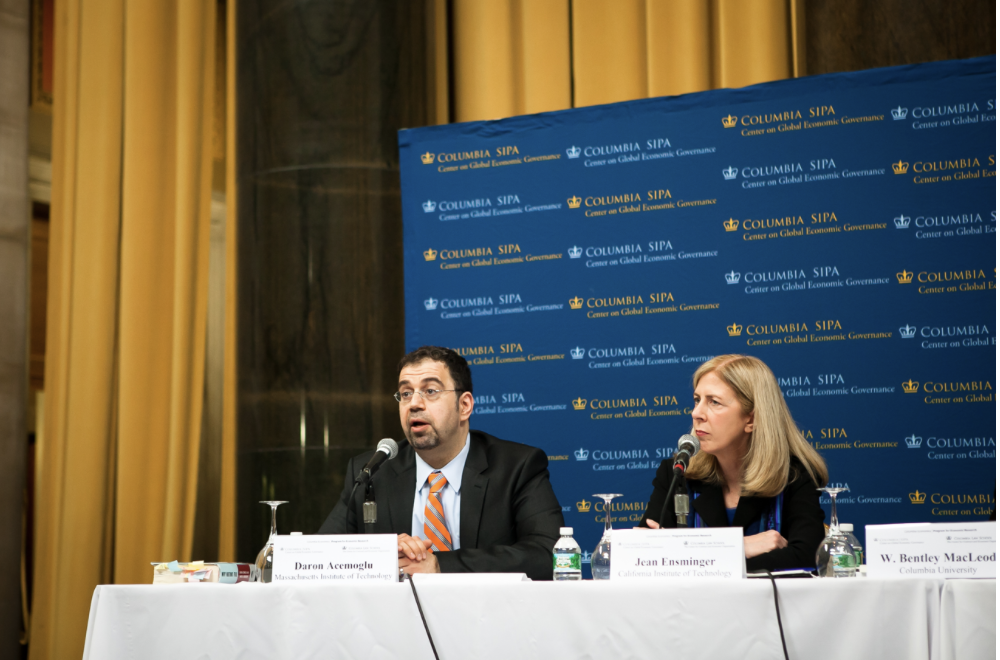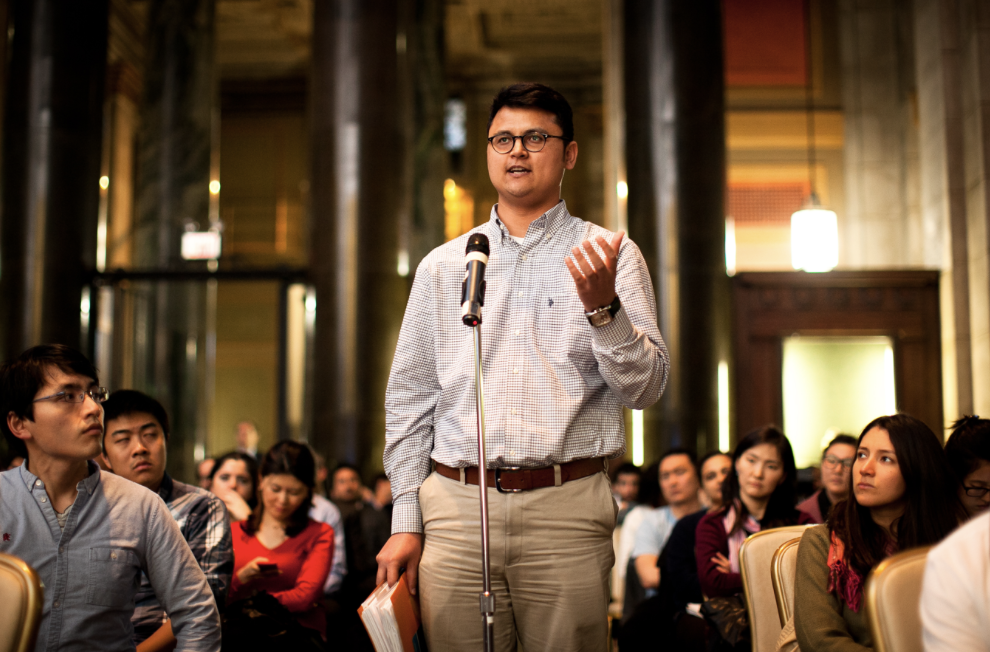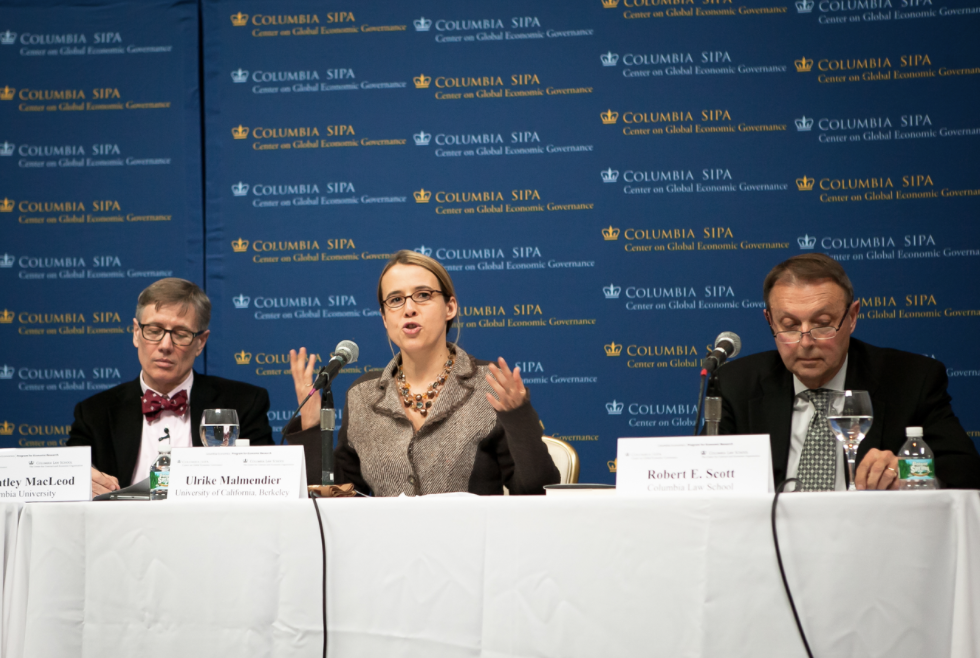What are the social, economic and legal building blocks for success? To answer this complex question, the Center on Global Economic Governance and the Program for Economic Research at Columbia University brought together respected scholars from Anthropology, Economics, Finance and Law: Daron Acemoglu, Professor of Economics (MIT) and author of Why Nations Fail: The Origins of Power, Prosperity and Poverty, Economic Origins of Dictatorship and Democracy and Introduction to Modern Economic Growth; Jean Ensminger, Edie and Lew Wasserman Professor of Social Science at the California Institute of Technology; author of Experimenting with Social Norms: Fairness and Punishment in Cross-Cultural Perspective and Making a Market: The Institutional Transformation of an African Society; Ulrike Malmendier, Professor of Finance (UCLA) and author of The Origins of the Corporation; and Robert E. Scott, Professor of Law and Director of the Center on Contract and Economic Organization at Columbia University. The discussion, held on April 3rd, 2014 at Columbia University’s Low Memorial Library, was moderated by W. Bentley MacLeod, Sami Mnaymneh Professor of Economics and Professor of International & Public Affairs at Columbia University.
Daron Acemoglu started the discussion: “Economic institutions matter for economic growth because they shape incentives. They do not only determine the aggregate economic growth potential of the economy, but also the distribution of resources. Similarly, political institutions determine the constraints on and the incentives of key actors, but this time in the political sphere.” According to Acemoglu, economic and political institutions are collective choices; therefore, the distribution of political power is a fundamental determinant of their evolution.
Ulrike Malmendier discussed how legal systems affect the way we act and the relationship between legal, political and economic development. She also commented on citizens’ belief formation: “the cultural and political environment in which individuals grow up affects their preference and belief formation, such as their trust in financial institutions, stock market participation, and preferences over social policies.”
Robert E. Scott pointed out that nations succeed when there is effective protection of property and contract rights. He also discussed on how trust builds endogenously: “Having the ability to enforce promises has a wonderful property: allowing individuals and organizations to plan. Individual transactors require a government structure with two key elements: a platform to exchange information with each other and a method of resolving disputes.”
Jean Ensminger, who has worked running economic experiments in small-scale societies around the world, commented on the relationships among social and political institutions, individual behavior, and the economic consequences of these interactions for individuals and society. “There is an iterative effect going on between the development of norms and the development of markets,” she pointed out. She also discussed social norms as triggers for effective collective action. Finally, she emphasized the implications of community size: “Larger communities need more complex institutions for conflict resolutions. The enforcing of contracts cannot be perfect in highly complex market societies. People don’t have the ability to punish people directly if they do not fulfill the contract. Only pro social norms can solve the problem.”
Q&A
A common concern was on the different concepts of institutions across countries. Ulrike Malmendier pointed out: “it is hard to know what the optimal design of the legal ruling is. We might underestimate that (a) people have limited ability to process legal rules and (b) societies are deeply affected by their past experiences.” According to Malmendier, these factors lead to default effects on institutions’ configuration.
Several students asked on the nature of inclusive institutions. Daron Acemoglu commented: “Only in societies where institutions are strong enough, individuals will feel secure enough in that they will have a say in how the resources are utilized”. Robert E Scott added: “Looking at the rules is the wrong way to assess if one institution is inclusive or not. The important thing is: What do the enforcing institutions do?” Acemoglu concluded: “States become strong because they have the consent of society. You will not have well-functioning institutions without some sort of social norms that support them”.
Dariela Sosa
CGEG Research Assistant

